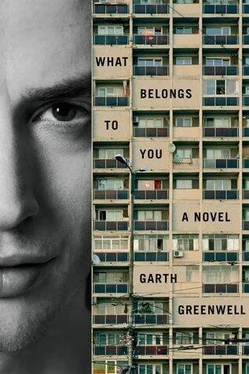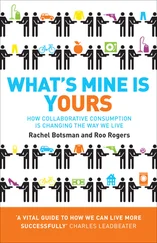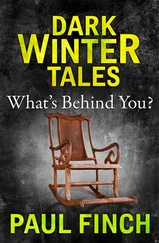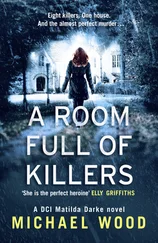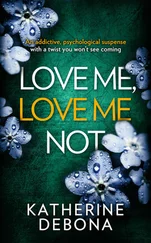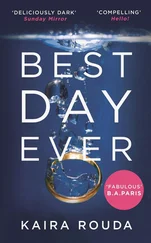I turned onto the large and busy boulevard that marked the neighborhood’s edge, though this meant facing into the wind, which charged down it unimpeded by buildings or trees. Several blocks ahead I could see something that looked like a construction site, though not of the kind scattered throughout Sofia, for malls or apartments; there was a single concrete pillar rising above the billboards that lined the streets, I couldn’t imagine at first what it was for. When I reached it, I saw that the billboards, which were faded and worn at the edges, displayed information about the construction of a cathedral, and that the date set for its completion had passed by several years. There was a sketch of what the cathedral would look like on one of the boards, along with its name, SVETI PURVOMUCHENIK STEFAN, Saint Stefan the First Martyr, I thought, puzzling out the roots for first and pain, the suffix that makes a word signify a person. Printed in a larger font than the saint’s name was the project’s corporate sponsor, one of the country’s biggest banks. The site was surrounded by a fence draped with green mesh, which was torn away in places. No one was building anything now, and it didn’t look like anyone had been working there for a long time. The pillar was the only section they had really begun, though maybe they had laid foundations for the rest, I couldn’t tell because of the snow. There was also an arch, I could see now; it peeled off from the side of the pillar, and next to it were a few steps leading up to a small platform. It was going to be the entrance, then, and the pillar must have been intended for the bell tower, though they hadn’t gotten very far; there were thin metal rods extending naked a few feet beyond the concrete, an aspiration, so far as I could tell, entirely abandoned.
I made my way across the road, two lanes on one side of the concrete median and two on the other, the ice more perilous than the traffic. The fence wasn’t really meant to keep anyone out, or not anymore; the metal posts were planted in concrete blocks one could move easily enough, as someone had already done where the segment of chain link was unsecured, creating a passageway I slipped through. The arch was graceful, despite the cheap material it was made of, and the whole site was like a ruin, or a ruin in reverse, caught rising rather than falling. The ground was strewn with beer bottles, cheap plastic jugs sticking up through the snow; there was no telling how long they had been there. I climbed the few stairs to the platform, which was sheltered from the snow by the arch, and here there was more refuse, a profusion of cigarette butts and plastic bags and, here and there, the discarded wrapper of a condom, the top strip torn and bent, opened hurriedly, I imagined, gripped by fingers or teeth. It hadn’t been entirely abandoned, then, and I thought of the teenagers who must use it to escape apartments that often enough house three generations. I looked up at the arch, and something in me responded to the familiar shape of it, though I haven’t been to a church in years, or not as anything but a tourist. I thought of R., wondering if he had gotten tested yet, if he was waiting for the result; I hated that I wasn’t with him, that there was no one he could ask to go in my place, that he was there because of me. I worried it would make him regret having met me at all; I wondered if I thought it should. Maybe they were a mistake, my years in this country, maybe the illness I had caught was just a confirmation of it. What had I done but extend my rootlessness, the series of false starts that became more difficult to defend as I got older? I think I hoped I would feel new in a new country, but I wasn’t new here, and if there was comfort in the idea that my habitual unease had a cause, that if I was ill-fitted to the place there was good reason, it was a false comfort, a way of running away from real remedy. But then I didn’t truly believe there was a remedy, I thought as I stepped down from the platform into the snow, walking back to the boulevard, and how could I regret the choices that had brought me, by whatever path, to R., any more than I could regret those that had led to Mitko and to moments that flared in my memory, that I knew I would cherish whatever their consequences.
I found a café, where I took refuge for a few hours with a book and bad coffee. When I returned to the polyclinic I was greeted by a different woman, who was much warmer than the first, even friendly as she told me that the test results were ready and that the doctor was available; she knocked on the office door and peered in briefly to announce my presence, and then told me to take a seat on the bench beside it. Just a minute, she said, she’ll call you in, though I waited much longer than that. The hallway was empty now, there were just two cleaning women standing at the other end, chatting beside a cart and mop, oblivious to who I was or why I was there. Soon it would all be over, I thought, remembering what R. had said; I would speak to the doctor and get my shot, and then I would be back in that cleaner life he and I had made together. It was only at the second or third shout from inside the room that I realized a voice, already exasperated, was calling for me to enter. I stood quickly, disconcerted, the more so as I opened the door to find a woman glaring fiercely at me from behind a desk. She stood as I walked in, but didn’t greet me or extend her hand, merely nodding at my murmured Dobur den . She was a slight woman, not quite young, and I was taken aback by her appearance, which suggested an idea of beauty at once ubiquitous and mocked here, a hypersexualized style associated with a certain kind of fashionable wealth. She was elaborately made up, with heavy eye shadow and glossy lips, and her hair was teased and styled into an enormous, unmoving mass. Her medical coat was pulled tight, and beneath it she wore a skirt of some vaguely reflective material and extremely high heels. She spoke Bulgarian in an odd way, very quickly and somehow at once clipped and indistinct, as though the words were a crisp fruit she bit into to find that it was soft. We have the results of the second test, she said, there’s no doubt now that you have this illness, which is something very serious for you, serious and dangerous, for you and for anyone with whom you have sexual contact of any kind. There was an odd formality to her speech, as though she were reciting a government text, as perhaps she was, and she asked me questions I had already been asked, whether I had had any wounds or sores on my genitals, but not only there, also in my mouth, beneath my tongue. Nothing I’ve noticed, I said, nothing unusual, though I had had sores in my mouth, they aren’t uncommon for me, they’ve come and gone since I was a child. This gave me pause, and the woman cocked her head just slightly. Are you sure, she said, a note of suspicion clear in her tone. I had heard university friends, medical students, complain that patients always lie, which they said with the same professional knowingness and exasperation I saw in the look the doctor gave me now, and if it was true in general it must be especially true here, in this room where there was such humiliation in revelation, where guarding a secret felt so much like guarding the self. Yes, I said, I’m certain.
She seemed to sigh at this, in acknowledgment or frustration, I’m not sure which, and then she said something I didn’t catch at all, a quick and sharp command. I hesitated a moment; sometimes there’s a kind of delay in processing the words and it’s as though I hear them again, or see them almost, laid out end to end as if on a page. But nothing came now, not a single word, and before I could ask she repeated herself more loudly, as one sometimes does when speaking to foreigners, as though it helps. I’m sorry, I said, feeling like a child, I don’t understand. The doctor closed her eyes, just slightly longer than a blink, and then she took what I thought must have been a steadying breath before saying something I did understand, Lower your pants, though I hesitated again, bringing my hand to my belt buckle but not yet undoing the clasp. This was too much for her, apparently, my failure to comply, and unable to contain her annoyance, she said Go on, I need to see your dick, using a word that while not quite vulgar wasn’t clinical either. It shocked me a little, though it wasn’t just the word that was a breach in decorum, it was also the pronoun she used, the informal ti . I had never really felt the force of this before; knowing how to address someone was always hard for me, we don’t have those nuances in English verbs, or not anymore. But I felt the difference it made now, it was like a change of temperature, and it eroded further the dignity I wanted to preserve. I lost that dignity entirely as I exposed myself, and then lifted my penis for her to inspect, pulling it to the right and the left as she directed, exposing all surfaces to her view. Finally she was satisfied, motioning for me to cover myself, and turned away to a little table beside her desk, where there was a blunt metal container and a large wad of cotton. She tore off some of this and dipped it quickly in the canister before handing me the sodden mass, the smell of it antiseptic and foul. For your hands, she said, and then turned again dismissively toward her desk.
Читать дальше
